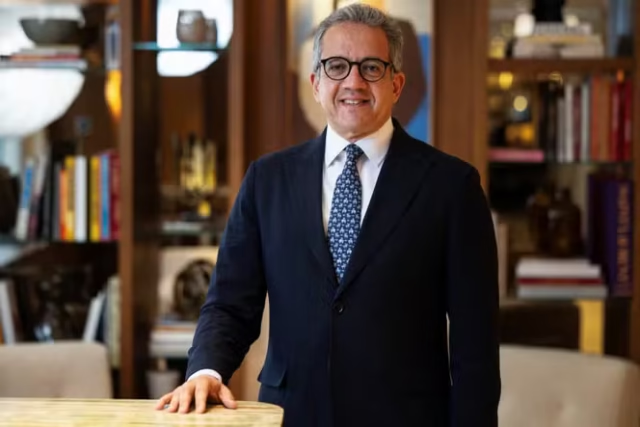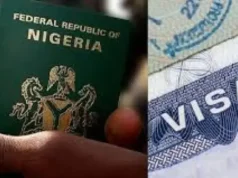In a decisive decision on Monday, October 6, 2025, Egypt’s Khaled El Enany was elected by UNESCO’s Executive Board to become the next Director-General of the United Nations Educational, Scientific and Cultural Organization (UNESCO), succeeding France’s Audrey Azoulay. The vote was overwhelming: 55 in his favour, versus 2 for his only rival, according to Reuters.
While the outcome of this internal vote is widely accepted as final, El Enany’s appointment still awaits formal confirmation by UNESCO’s full membership at the General Conference scheduled for November 6 in Samarkand, Uzbekistan — though observers consider that step a procedural formality.
For the first time in its history, UNESCO may have an Arab head. El Enany’s rise represents both symbolic and strategic significance — especially at a time when the agency faces serious funding pressures, geopolitical fault lines, and demands for institutional renewal.
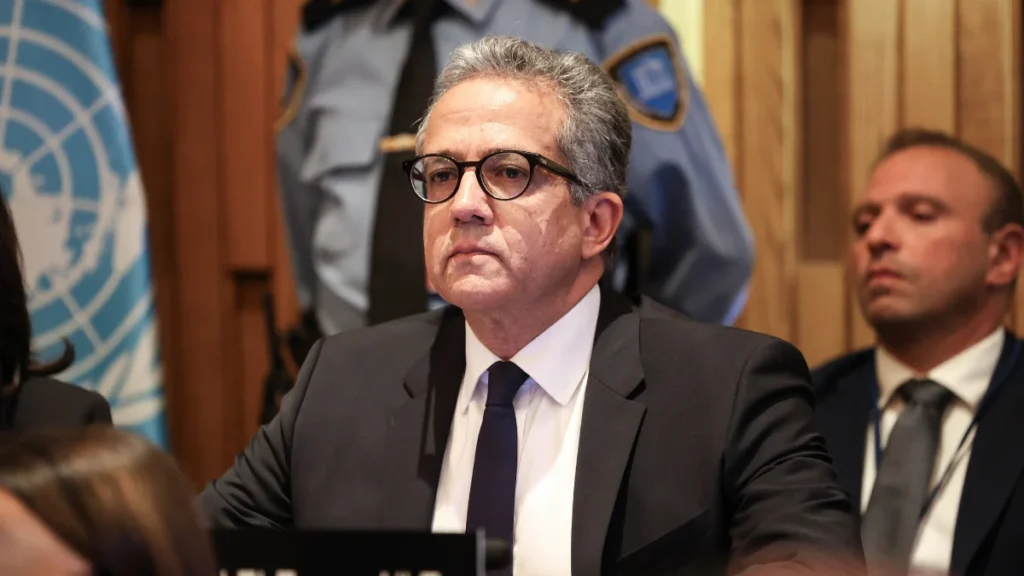
Table of Contents
From Academia to International Stage: The Man Behind the Title
Roots, Education and Early Career
Khaled Ahmed El Enany was born in 1971 in Giza, Egypt. He later studied Egyptology at Helwan University and earned a doctorate from Paul-Valéry University in Montpellier, France. Over the years, he combined scholarship and public service, rising to prominence in both academia and cultural administration.
He held academic positions in Egypt and France, teaching as a visiting professor in Montpellier between 2006 and 2023. In Egypt, he steered major heritage and museum institutions: he directed the National Museum of Egyptian Civilization and the Egyptian Museum in Cairo.
In 2016, El Enany entered government service as Minister of Antiquities, later merging that role with Tourism, serving until 2022. Under his watch, the tourism sector took on renewed momentum, with museum renovations, improved visitor services, and new heritage-tourism initiatives pushing cultural diplomacy.
Campaign, Style & Vision
El Enany was not merely a candidate by default; he pursued this role with deliberate planning. His campaign spanned roughly 30 months, during which he emphasised UNESCO as a platform for education, human rights, cultural access, and scientific development. He described himself as someone who once worked as a tour guide among Egypt’s ruins, thereby understanding at a grassroots level how culture, heritage and economy interweave, according to Le Monde.fr.
His style during the final stage of the process was measured and conciliatory. After the result was announced, El Enany delivered his remarks in English, thanking his country in Arabic first. He pledged humility, gratitude, and unity — signalling his readiness to listen and bridge divides.
Diplomats and observers described him as a rare blend: a scholar and a doer, someone grounded in Egyptology yet able to navigate high-stakes international negotiations. As one diplomatic source told Reuters, the 55–2 board vote reflects the strength of his backing and political alliances.
High Hopes and Tremendous Challenges
The Next Step: Formal Ratification
While El Enany’s election by the Executive Board effectively chooses UNESCO’s next leader, the formal step is ratification by all 193 (or 194, depending on counting) member states at the General Conference. That meeting, in Samarkand, Uzbekistan, on November 6, is widely seen as a procedural endorsement rather than a genuine contestation.
Among his first tasks will be assembling his cabinet, setting priorities, and reasserting UNESCO’s mission at a time of rising divisiveness in the world.
Financial Pressures and U.S. Withdrawal
One of the gravest challenges El Enany inherits is a looming budget crisis linked to a renewed U.S. withdrawal. The United States plans to exit UNESCO again at the end of 2026, pulling out roughly USD 75 million, or about 8% of the organisation’s annual budget. That cut would shrink UNESCO’s $900 million operating base.
To mitigate the shortfall, El Enany has proposed diversifying revenue sources: tapping private-sector support, exploring social impact bonds, and collaborating with tech firms. He has also expressed hope that the U.S. may one day rejoin, though he treats that possibility with realism.
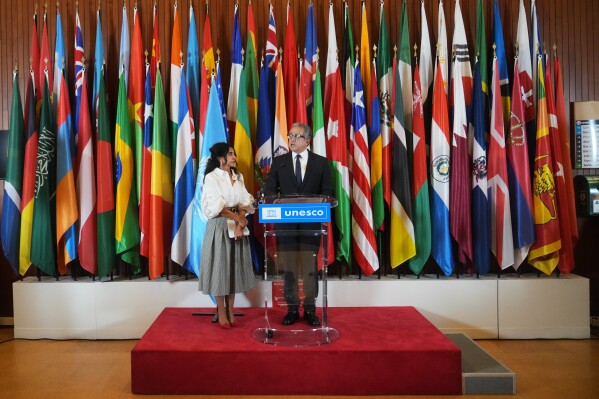
Geopolitics, Institutional Reform & Relevance
UNESCO today finds itself buffeted by geopolitical currents. The U.S., China, and Russia have all challenged aspects of UNESCO’s mandate or operations. Some critics question UNESCO’s effectiveness in conflict zones or its perceived alignment in political controversies.
El Enany’s task will be to reassert UNESCO’s credibility, strengthen its relevance, and balance cultural, educational and scientific objectives against political pressures. He says one of his core commitments is to treat all states equally — handling every dossier “without politicisation or bias.”
He plans to broaden UNESCO’s task beyond heritage to ensure culture, education, and science remain actively accessible to citizens everywhere. In his vision, UNESCO is not just about monuments — it is about empowering people, protecting freedom of opinion, and spreading knowledge.
In interviews, El Enany promised an “open-door” approach, with regular consultations, prompt responses to member states, and fairness across the board.
Nonetheless, reforming entrenched institutions is never easy. The tension between aspiration and bureaucracy, funding and trust, politics and principle — all lie ahead.
A New Era for UNESCO—and Symbolism That Matters
El Enany’s election carries symbolism beyond the corridors of UNESCO headquarters in Paris. That an Arab candidate now leads a major U.N. cultural agency for the first time speaks to evolving global dynamics and shifting expectations of representation.
Regional Support, Diplomatic Gains
His candidature enjoyed strong backing from the African Union, the Arab League, and several European and Latin American countries. Shortly after the vote, the African Union Commission, through its chairperson, publicly congratulated El Enany and pledged support for his mandate.
Egypt, too, hailed the result as a vote of confidence in its heritage stewardship and diplomatic weight, especially in the Arab and African spheres.
What It Means for Africa, the Arab World & Global South
For Africa, having one of its own (from Egypt) at UNESCO’s helm is a psychological boost and a chance for greater agency. The continent often finds itself on the receiving end of global heritage decisions; having influence at the top may help rebalance that.
For the Arab world, it demonstrates expanding soft-power reach: heritage, archaeology and culture are long central to Egypt’s identity; now, that legacy extends into global governance.
For the Global South broadly, this election may signal a shift: institutions long dominated by major powers are gradually becoming more plural, reflecting multiple voices.
Yet, symbolism must translate into substance. El Enany will be measured on performance — not his title.
Risks, Watchpoints & Public Expectations
Observers will watch closely how he handles:
- Funding stabilization. Can new income sources compensate for the U.S. exit?
- Internal reforms. Will he streamline UNESCO’s structure, improve transparency, and curb bureaucracy?
- Geopolitical pressure. Can he assert neutrality while navigating contentious cultural, educational or scientific issues involving powerful states?
- Project delivery. Can UNESCO under his leadership deliver real outcomes: improved education, heritage protection, conflict-zone cultural safety, and climate-resilient heritage projects?
- U.S. relations. Even though the U.S. abstained from the current vote, its disengagement looms. Will El Enany be able to rebuild bridges — or accept a new normal?
His first 100 days will be critical, and El Enany has already committed to using that period to consult member states, set clear priorities, and begin internal restructuring.
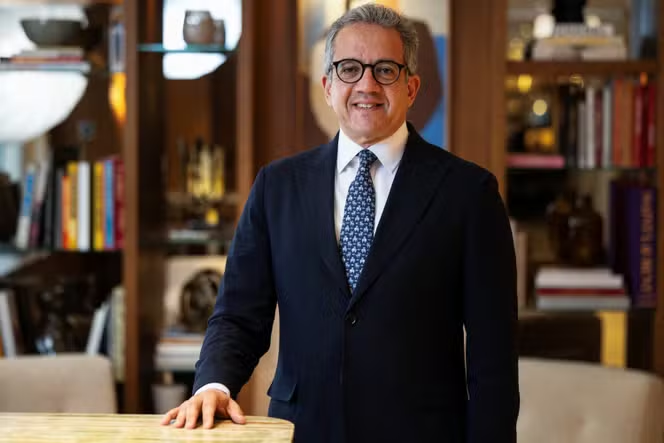
Conclusion: A New Chapter Begins
Khaled El Enany’s election as Director-General of UNESCO marks a turning point. It is historic, symbolic, and ambitious — but also demanding, fraught with risk, and heavily scrutinised.
In the face of funding uncertainty, geopolitical tensions, and calls for institutional renewal, his leadership will be tested from day one. The hopes of many — from heritage activists and scholars to smaller states craving a voice — now rest partly on his ability to marry vision with delivery.
UNESCO is more than its monuments or world heritage lists; its relevance depends on its ability to remain responsive to people, resilient in crisis, and courageous in upholding knowledge, culture and education across divides. As El Enany prepares to take office, the world watches—and stakes are high.
Join Our Social Media Channels:
WhatsApp: NaijaEyes
Facebook: NaijaEyes
Twitter: NaijaEyes
Instagram: NaijaEyes
TikTok: NaijaEyes
READ THE LATEST EDUCATION NEWS


